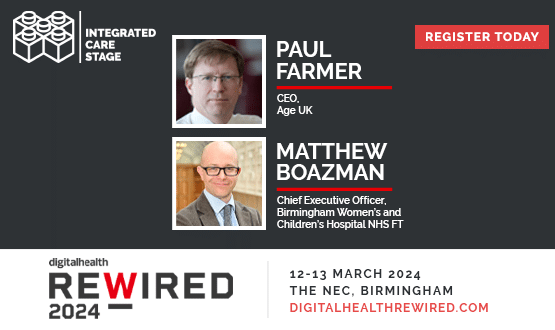Integrated care pilots show few benefits
- 3 April 2012

An independent evaluation of the Department of Health’s integrated care pilots has shown they are delivering few of the benefits hoped for them.
The DH established the pilots in 2009 to promote “personalised” and “seamless” care, and to show that linking up health and social care could deliver a range of benefits, including fewer expensive admissions to hospital.
IT has been recognised as essential for integrated care, with think-tanks calling for new integrated care records and services to be created to support it, and a number of suppliers promoting their systems as a way to achieve it.
However, an evaluation of the ICP by Ernst and Young has found that while staff identified a number of benefits, most of these were process related and not obvious to patients.
The report also finds “no evidence of a general reduction in emergency admissions” and “no overall significant reductions in the costs of secondary care utilisation.”
And when it poses the question “can the approaches to integrated care found in these pilots save money?” the authors conclude “not the short term and certainly not inevitably.”
ICP was a two-year programme involving 16 organisations across England. They ran various projects, including case management of people with multiple long term conditions, and more focused attempts to reduce falls among elderly patients.
The evaluation found the pilots were more likely to join up GP practices, community nursing services, and social care, than to join up primary and hospital care.
Despite this, the evaluation found that difficulties with sharing data and communicating across health and social care teams were a barrier to success.
The report details problems with a lack of interoperability between the IT systems used by partner organisations and says the organisations themselves were often reluctant to share patient data with one other due to privacy concerns.
“We have developed a data sharing agreement which we’re about to test, but it’s just really cumbersome because they want to have that in place for everything,” a manager at one of the pilot sites said.
“There’s no blanket approval that they can give, so every time you want to share data you’ve got to fill the data sharing agreement in and get it approved, and there’s 16 practices to do that with every time.”
The report says that Wakefield, in particular, found that challenges with IT were more significant than anticipated.
The area wanted to improve its substance misuse services, with a focus on developing the local workforce, but found it hard to get data from the Department for Work and Pensions, and then ran into licensing issues for a new Microsoft SharePoint-based portal.
The evaluation found that the costs of implementing change were varied and individual to each pilot.
Most of the benefits identified by staff relating to process issues, such as the creation of new roles, or getting care plans in place for patients.
The authors suggest patients might not have seen the benefits of this because the pilots promoted “professional-driven rather than user-driven change”, because they were poorly implemented, or because they were not given time to work.
They also speculate that one reason emergency admissions did not decrease was that some service users (especially older patients) were attached to the pre-pilot ways of delivering care, but said this could change over time.
The report concludes by saying integrated care can lead to improvements in services, but only “if well led and managed, and tailored to local circumstances and patient needs.”
Even then, it says that improvements are not likely to be evident in the short term. In a statement, care services minister Paul Burstow said: "Time and time again when I meet patients and their families… I hear stories about how professionals don’t work as a team and how patients are asked the same questions again and again.
"That’s why integration matters. It means health and social care professionals talking to each other and seeing each other as colleagues rather than adversaries.
" I don’t dismiss this analysis. It makes clear the gains to be had from integration are hard won."




